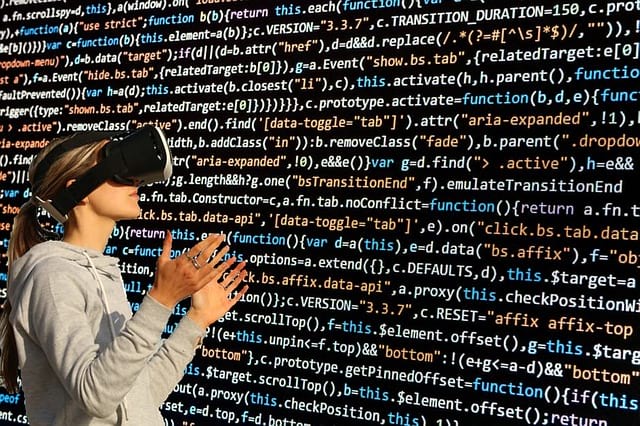Commercial industrialization is constantly changing. Virtual reality (or VR) has contributed to the changing role of humans in commercial industries. Indeed, industries are already feeling the impact of virtual reality.
Virtual reality is already advancing the digital landscape in many commercial industries. Industries like manufacturing, corporate training, and defense are being transformed by virtual reality. On an industrial scale, VR is improving all aspects of work.
Virtual reality holds unlimited opportunities for commercial industries.
Virtual reality is a definitive game changer. It defines how commercial industries use digital technologies. With virtual reality, a more comprehensive training ecosystem is available. This will enable today’s workforce to achieve better performance, which then improves efficiency.
Below, we look at how three virtual reality services can be effectively used to meet the needs of different vertical markets.
Training and industrial learning:
One of the key benefits of virtual reality is its ability to provide an immersive platform. This is crucial for industries seeking to simulate training in a safe, virtual world. This is particularly true for industries engaging in extreme and dangerous scenarios.
Virtual reality’s role in industrial learning applications
In industries with dangerous applications, virtual reality provides experiential training in real time. With virtual reality, users can simulate hazardous situations from the safety of a training room. Such simulations enable trainees to practice behavior and improve situational awareness.
Hazardous scenario role-playing enabled by virtual reality include:
- Production malfunctions
- Working from heights
- Fire and electrical hazards and safety
- Cramped and claustrophobic conditions
- Hazardous materials handling
Industries can role-play such scenarios while removing potential risks. Virtual reality also removes the financial and logistical costs associated with such mock-up environments. The realism experienced in virtual reality increases training quality, user engagement, and knowledge retention.
Virtual reality training empowers today’s worker, providing valuable experiences that apply to real-life situations.
Skills building:
Virtual reality’s educational value extends beyond simulating hazardous scenarios. It can also deliver knowledge on-demand. This is valuable for operations seeking agile ways to improve efficiency.
Virtual reality ensures operations have the right expertise in the right place.
Skills development in virtual reality
With virtual reality, skill development increases in effectiveness and advanced skills building becomes more efficient.
Virtual reality’s simulated environments enable real-time haptic feedback. This fosters a more impactful and memorable skills learning platform for businesses. It also creates deeper expertise by providing data-ready metrics and performance management.
Virtual reality and developing soft skills:
More enterprises are adopting virtual reality to upskill their workforce. Advancing technical expertise is just one application. Like technical expertise, virtual reality training solutions enhance soft skills.
Indeed, virtual reality solutions have become crucial in simulating various soft skills scenarios.
The scenarios constructed by VR development companies can vary, but may include:
- Presenting to C-level executives
- Delivering sales pitches to prospective clients
- Communicating with the media
- Giving difficult feedback to a colleague
In today’s workplace, soft skills are essential to a company’s success. Virtual reality bridges digital, simulated scenarios and traditional training methods. The technology enables industries to capture unprecedented behavioral data.
This justifies virtual reality’s ROI while improving skills development practices.
Brand storytelling:
Consumer-facing industries deploy virtual reality production to deliver new approaches to storytelling.
Virtual reality technology is able to place audiences in an immersive, given narrative. It accomplishes this by combining 3D models, images, animations, interactive hotspots, and more. There is game-changing value in how viewers engage with a brand’s story.
Virtual reality-powered narratives:
Virtual reality offers experiences that enable brands to visualize a concept.
The technology is an obvious fit in real estate as it serves many applications. However, its main role is to be used as a digital modeling tool. This enables the real estate sector to showcase properties in an engaging virtual setting.
Virtual reality property tours support the sale process. This saves on time, money, and expenses often associated with house viewings.
In media, virtual reality enhances immersion by eliminating boundaries between audiences and the story. It transforms how narrative content is delivered. Interactivity enhances emotional connections, making the audience experience more memorable.
Content consumption is not the only way virtual reality is transforming these industrial landscapes.
In retail, virtual reality fosters content creation. Virtual fitting rooms are an important tool for e-commerce retailers. These enable customers to have virtual access to a retailer’s inventory. Customers can then design and customize products in an immersive fashion.
Virtual reality and the future of industrial applications:
Virtual reality represents uncharted experiences waiting to be discovered.
Virtual reality services are adaptive across a wide spectrum of industries. This creates new avenues for commercial sectors looking to engage with digital technologies. The steady march of virtual reality means it will continue to become more prolific.
Expect to see virtual reality further innovate industrial landscapes in countless imaginable ways.
AUTHOR BIO: Judit Chackal is responsible for the marketing, communication, and business development efforts of Reach MENA and its sister company, SENSE-R, the leading MENA-based virtual reality developer for VR branding projects and Industrial Training Simulators. She has over a decade of experience in delivering strategic marketing & business development visions for global clients in the travel, hospitality, events and education sectors. Her passion for content and experiential marketing led her to the field of virtual reality project development.



